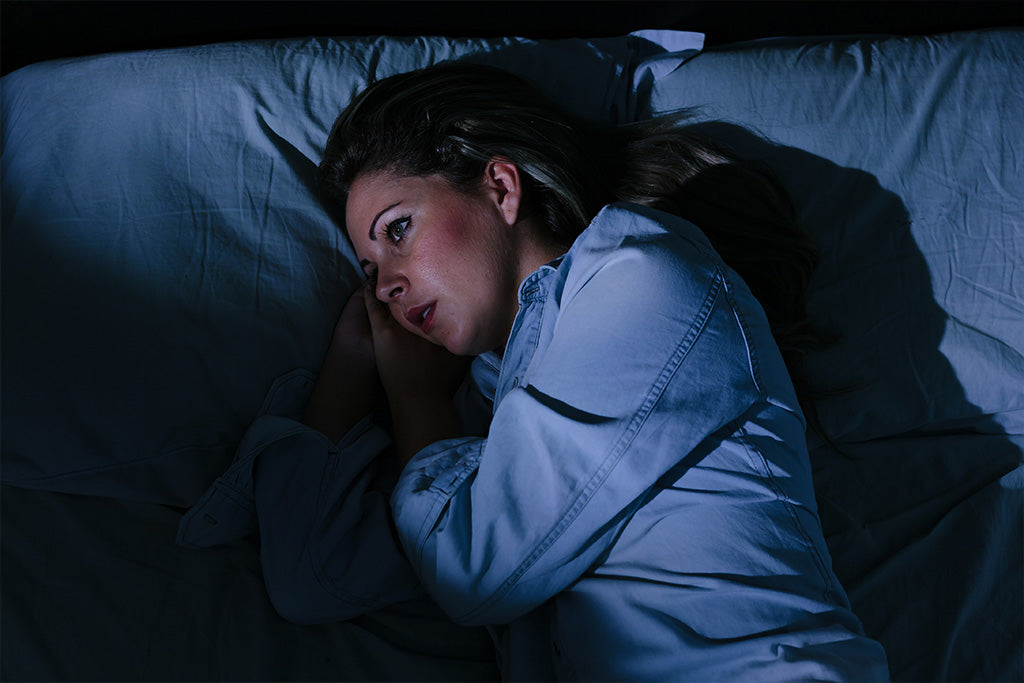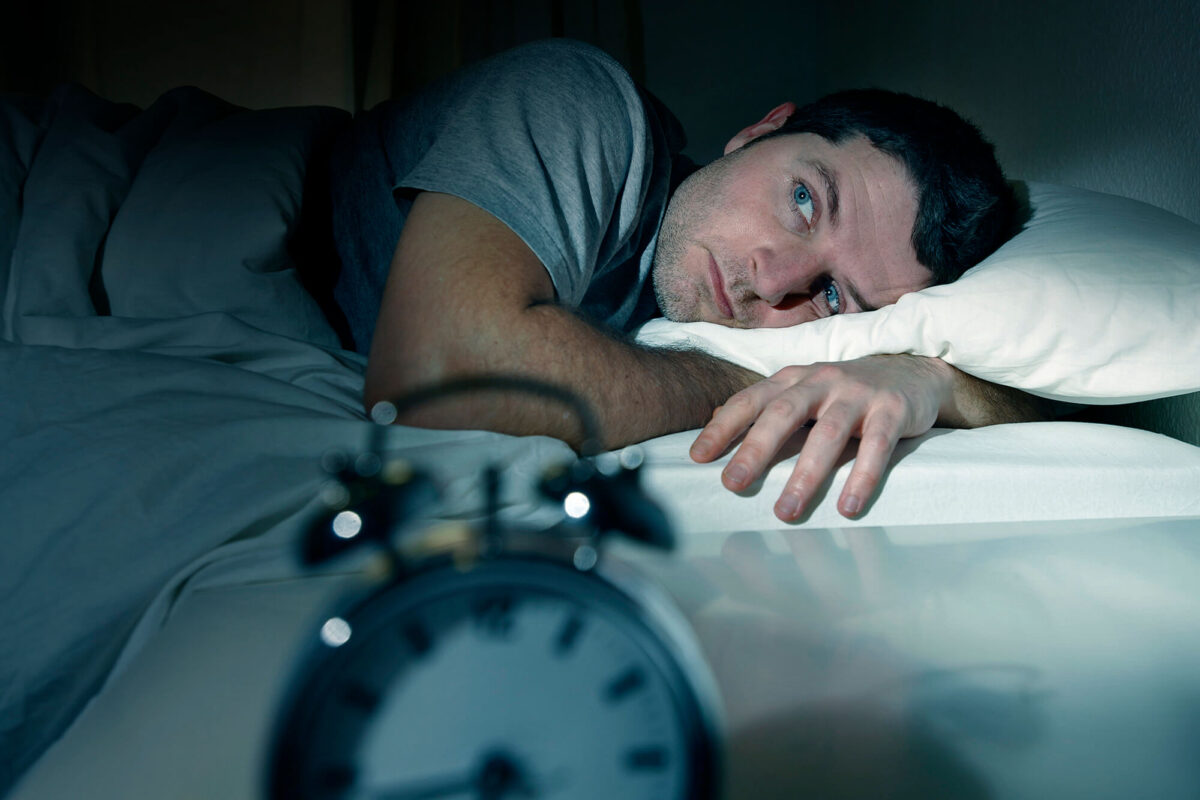It’s estimated that up to 30-40% of people experience sleep issues. These problems aren’t limited to the elderly; many young individuals today also face disrupted sleep patterns, staying up late and struggling to wake up early, finding it difficult to fall asleep, waking frequently during the night, and having trouble falling back asleep.
Common Symptoms of Insomnia Include
- Difficulty falling asleep.
- Frequent awakenings during the night and difficulty returning to sleep.
- Light, restless sleep.
- Waking up too early.
- Daytime sleepiness, grogginess, and lack of alertness.
- Fatigue, poor concentration, and irritability.

Possible Causes of Insomnia
- Genetic Predisposition: Some individuals are naturally light sleepers or have difficulty maintaining deep sleep.
- Stress and Anxiety: These are the most prevalent causes of insomnia.
- Aging: Sleep duration tends to decrease by about 30 minutes every decade after the age of 18.
- Chronic Health Conditions: Such as prolonged anemia, chronic cough, joint pain, enlarged prostate, stomach ulcers, and cancer-related pain.
- Environmental Factors: Such as changes in time zones, night shifts, noisy environments, and extreme temperatures.
- Long-term Use of Certain Medications: Or consumption of stimulants.
- Mental Health Disorders: Including anxiety, depression, and paranoia.
Strategies to Combat Insomnia
- Lifestyle Adjustments: Adopting healthier habits and routines.
- Sleep Hygiene Practices: Creating a conducive environment for sleep.
- Nutritional Supplements: Incorporating foods that promote better sleep.
- Herbal Remedies and Health Supplements: Using natural products to support sleep.
- Medications: Should be used under a doctor’s guidance.
- Treating Underlying Health Issues: Addressing any medical conditions that may be causing insomnia.

Sleep Hygiene Tips
- Enhancing Melatonin Production: Melatonin, a hormone produced by the pineal gland, regulates sleep. The following measures can help increase melatonin levels naturally:
- Consume Tryptophan-rich Foods: Include brown rice, peanuts, soybeans, beans, nuts, fish, white meat, dairy products, eggs, bananas, and dark chocolate in your diet.
- Engage in Light Exercise and Relaxing Activities: Spend time in nature, relax, and do activities you enjoy to boost serotonin, which helps regulate sleep.
- Maintain a Healthy Gut: Since most serotonin is produced in the gut, ensure a healthy gut microbiome by eating fiber-rich foods and probiotics found in yogurt, kefir, and kombucha tea.
- Create a Relaxing Sleep Environment: Ensure quiet, darkness or warm dim lighting, soothing music at a moderate volume, warm baths, and cozy blankets to enhance melatonin production.
- Limit Stimulants: Reduce the intake of alcohol, coffee, and tobacco. Keep your bedroom clean, cool, and well-ventilated.
Supplementing with Bneuron
Bneuron is a supplement that provides essential nutrients like DHA, Lactium, vitamins, and passionflower extract, supporting overall health and relaxing the nervous system. Consuming two glasses of Bneuron daily, one in the morning and one in the evening, can help reduce stress, relax the nervous system, and promote quality sleep and overall health.




